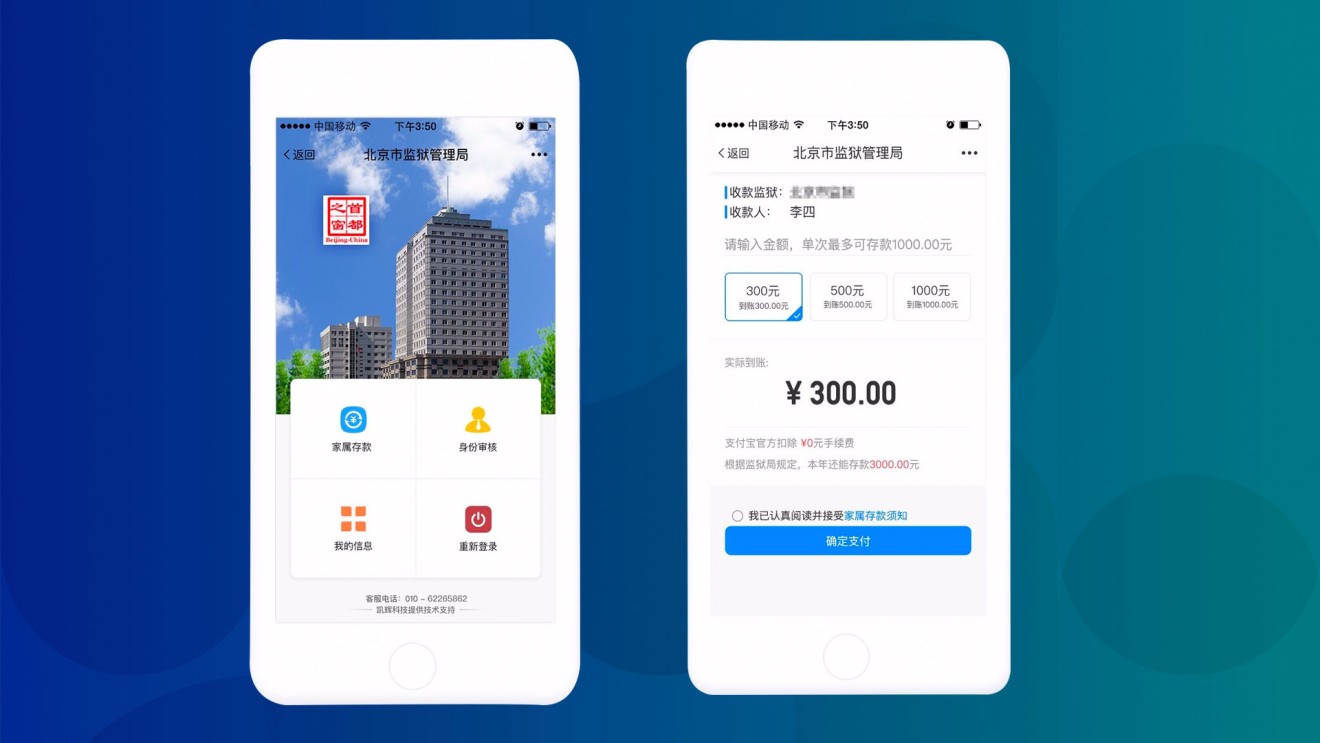
Even prisons accept mobile payment in China’s cashless society
Alipay lets families send money to loved ones in jail
You’re an inmate at a Beijing prison. You just ran out of toothpaste, so you decide to buy a new tube at the commissary. But wait, you don’t have enough cash.
Fear not: There might be money in your electronic wallet.
Using Alibaba’s payment app Alipay, family members can now pass money to a prisoner. First, they take a photo of the inmate’s national ID card. Once it’s verified, the inmate can receive a maximum of 1,000 yuan (around US$147) each month from a relative.
(Abacus is a unit of the South China Morning Post, which is owned by Alibaba.)

For better or worse, the proliferation of smartphones and apps has provided security agencies with new tools to do their jobs.
Smartphones are also giving private citizens an easier way to participate in policing themselves. In the southern tech hub of Shenzhen and other cities, people can report traffic violations to police through Alipay and WeChat.
Informants are asked to fill out a form, including information such as the car plate of the offending vehicle and photos showing the scene. Users are required to grant the app access to their GPS location. For all that work, the Shenzhen Traffic Police say they will reward money to successful informants. The amount ranges from 20 yuan (US$2.96) for reporting on someone driving on a lane reserved for public vehicles, to 20,000 yuan (US$2,957) for a serious car crash involving more than three deaths.

While the use of new technology to gather fines and crime information seems harmless enough, other applications have drawn more questions.
Smart ID cards and facial recognition: How China spreads surveillance tech around the world
For more insights into China tech, sign up for our tech newsletters, subscribe to our Inside China Tech podcast, and download the comprehensive 2019 China Internet Report. Also roam China Tech City, an award-winning interactive digital map at our sister site Abacus.
For more insights into China tech, sign up for our tech newsletters, subscribe to our Inside China Tech podcast, and download the comprehensive 2019 China Internet Report. Also roam China Tech City, an award-winning interactive digital map at our sister site Abacus.

